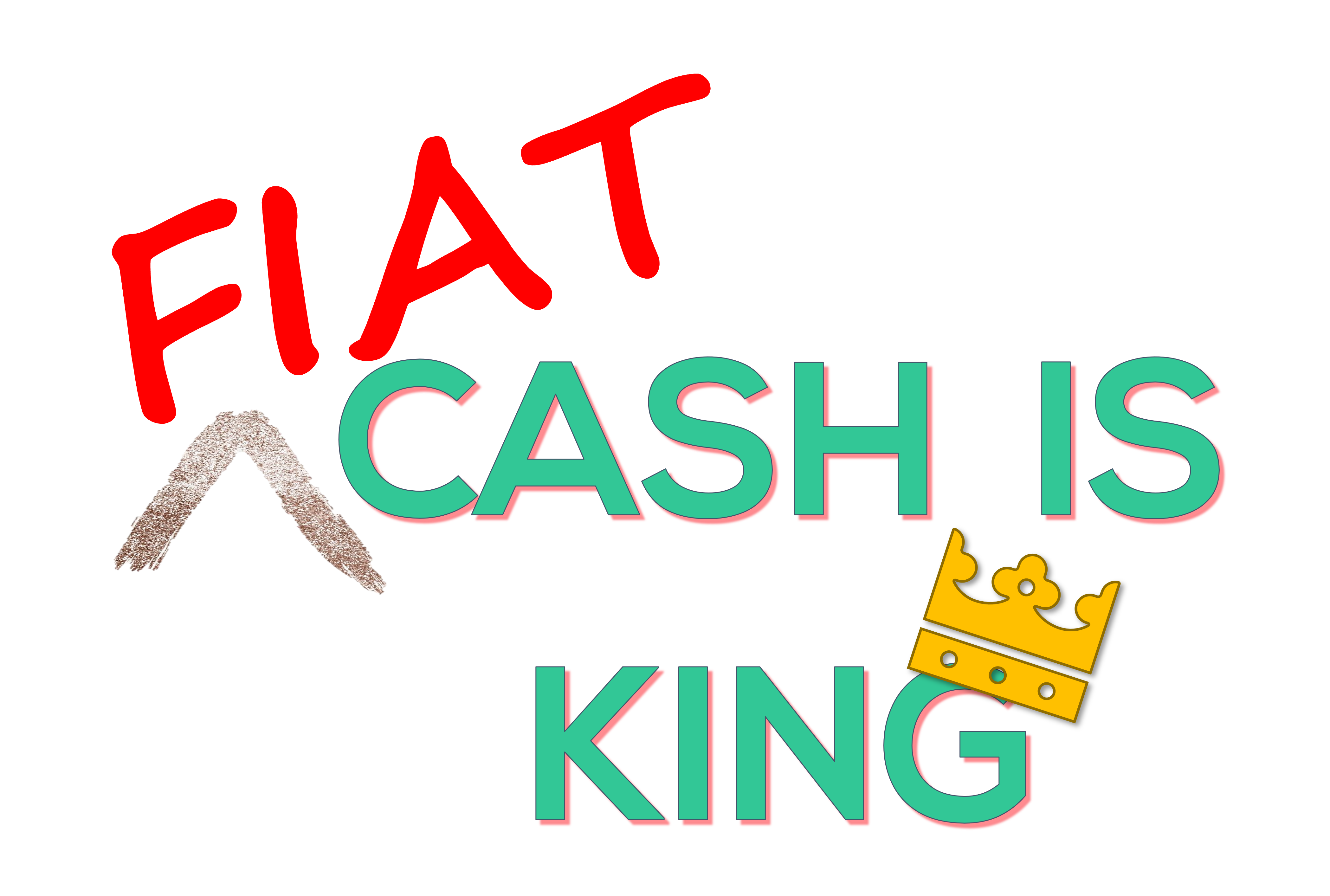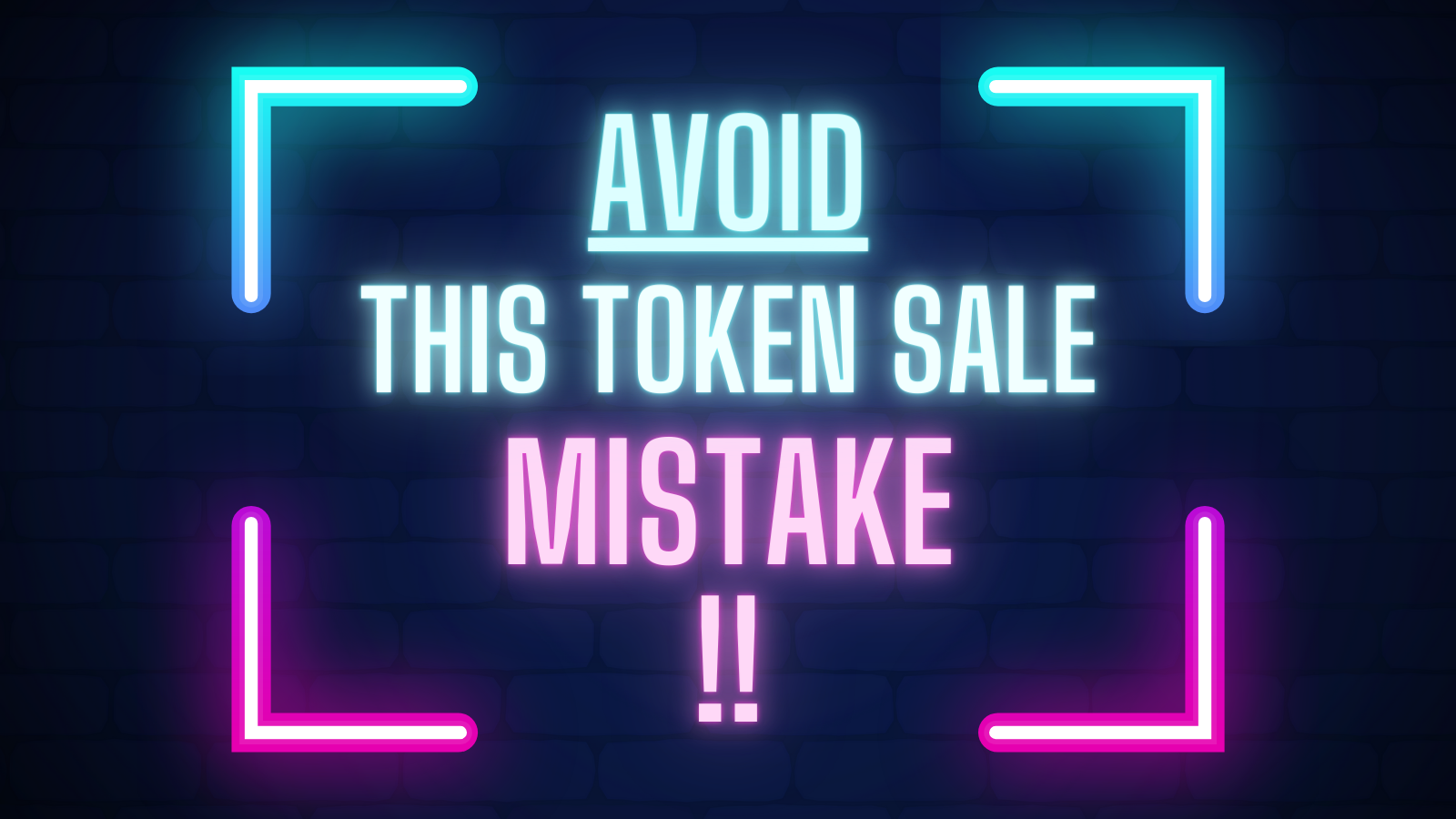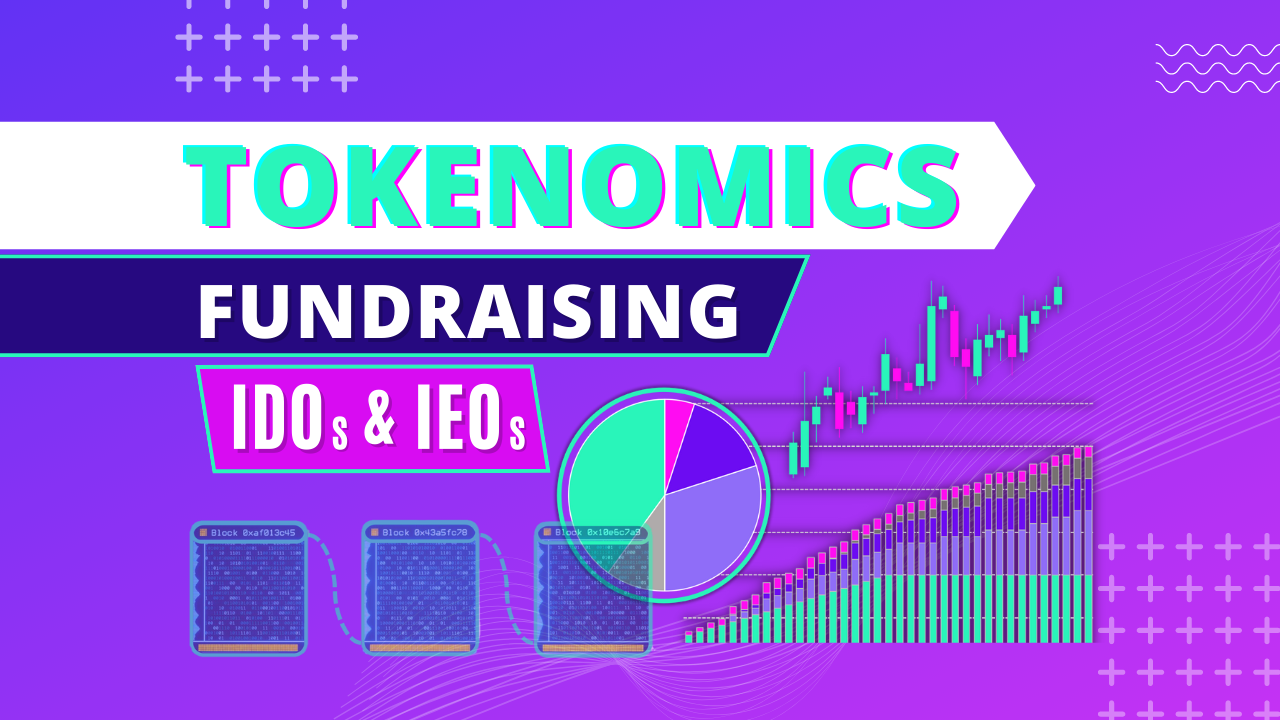
Learn more tokenomics
Watch video version of this article
Click to subscribe:
Last time...
...we examined the basic components of a token sale offer.
Token sales use a token generation event (TGE), to create the tokens which are sold to external investors for capital... and to create token funds for a greater range of economic uses as well.
This resembles equity financing, which raises capital by issuing new shares that are also created "out of thin air". But looking at the detail, we saw that TGE funding is actually a radically different financing option for early-stage companies. And that's because tokens are fundamentally different to equity.
Unlike equity shares, tokens are often working assets within the economic process, and in addition, tokens also facilitate early liquidity access that is impossible to attain with equity.
This means that TGE choices have the potential to be much more immediately and directly consequential than an issue of new equity shares... and that gets many founders feeling very excited!

It looks like they get TWO financial assets — money AND tokens — with ONE, single, fundraising deal!
And this is where many of them make a TERRIBLE mistake...
Your smart contracts are not a CFO

True, they are critical to the token sale, by allowing parties to trustlessly fix important and consequential terms for the token economy.
And yet...! However important those token supply terms are, they are VERY far from amounting to a comprehensive set of rules for good financial management... They offer crude guardrails at best!
And this is where well-intentioned founders trip up.
Many assume that the smart contract controls on supply — signed off by investors and stakeholders in a successful fundraise and listing — are enough. The tokens that those contracts release to them are theirs to 'spend'... and they can count on that.
Spoiler alert: THEY AREN'T.
A cunning plan... until it wasn't
Imagine that you're part of a blockchain startup.
It's been six months after your token listing, and the first of the company's token allocations finally begins to release!
And not a month too soon either...!
Spending got out of hand, product development is taking longer than anticipated, and the fiat funds were burned through much more quickly than expected.
It was always a lean funding plan to begin with:
...raise the minimum amount of external financial capital...
...and fund the rest with vested tokens...
And then, just as the plan is about to bear fruit, the markets take a turn for the worse and the value of the project's token plummets with it — no relation whatsoever to what the company had been doing.
Market makers inform you that in this new market environment, you can only spend 10% of the tokens that are now being released to you every month. If you spend any more, the token price will CRASH!
This leaves you all in an unexpectedly absurd position.
Piles and piles and piles of tokens begin to fill up in the project treasury...

They are worth MILLIONS at the market exchange price... and also worth NOTHING at the same time!
Because as soon as you try and spend any significant portion of these token holdings, their value evaporates!
By drawing up a budget that was reliant on token funding early in the project life, your team failed to create a funding plan that was resilient to market shocks.
Errors like this floored so many projects in the last bull run... But the good news, is that there is a really simple way to help you avoid ending up in this kind of situation...
The token sale mantra...

These wise words have long been recited in the hallowed halls of business schools worldwide... well, without the "fiat" part... I've added that here, because it's worth stressing in a blockchain context.
First, it will often be the first time that business owners have been faced with such a situation. Normally, if you have one million USD to hand... you have one million USD to spend! That's no longer true when you are holding market traded assets with limited liquidity and volatile prices!
Second, there's an enduring ideological legacy that sees blockchain's core mission to be the dethronement of fiat currency. By this view, projects that continue to rely on fiat are not really committing to the technology, or its vision. Yet as our story illustrates, devotees of this dogma have not fared well... The fact is that the best of our fiat money has STABLE VALUE properties that most digital assets lack, and we need those properties in order to build viable and sustainable crypto businesses.
Now, to be perfectly clear, I'm NOT saying that founders need to deal with actual physical cash... but they do need to work with fiat-linked STABLECOINS at the very least, and make them the core pillar of their fundraise, startup budget, and treasury management strategy.
So when you plan your token sale remind yourself of the MANTRA and make sure that you...
- Set your fundraising target so you are COMPLETELY COVERED by the fiat capital you raise
- DO NOT make reliance on native token liquidations part of your core, early-stage spending plan
Summary and recap
Token supply, allocation, and vesting terms only offer limited controls on inflation and financial management.
The token release schedules should NOT draw the outline of your default spending plan — it is prudent to avoid liquidating tokens for as long as possible.
Plan your fundraise to make sure that your runway is fully funded by fiat-linked capital. And if the planning ever becomes complex or tricky just remember one thing... CASH IS KING... (And blockchain offers no exception!)
Next time...
... we'll take a closer look at token vesting schedules... and see that there is much more to them than meets the eye...!
Weighing it all up
So now that we understand the parts of a token sale offer and their economic function... how do we make sense of making out whether they are good or bad?
[complex topic check out my own course...]
mention smart contracts and trust...??
But what we can say here... in non-technical terms, a good token sale offer needs to give a reasonable answer to a reasonable question about these new tokens:
A rough guide to a good response, is that it should offer a strong case to explain that:
"Who gets what? When? And Why?"
So
So yes, developers can use their powers to achieve much more than has previously been possible through an early-stage equity financing... But they CAN'T stretch those powers out without limit!
The short answer is that WE do...!
"We"... as prospective investors and users of the token in the sale proposal.
The rules that govern the token's economic attributes are defined and executed on immutable smart contracts deployed on a public blockchain.
These contracts are fully transparent and auditable, and the offer truthful statements about the smart contract's code will execute.
This means we can check the contract to decide for ourselves whether the numbers "add up"...!
And many times they won't.
The guide for a good response, is that it should make a strong case that:
- Tokens are distributed to agents who have contributed value to the economic process that the token supports
- The increase in supply arising from the tokens they are granted does not outstrip or disrupt the ability of the token economy to continue driving a sustainable flow of value

Roderick is a blockchain professional, specialising in tokenomics advisory and economic design.
His advisory contributions have helped raise over $100m for blockchain startups, and he brings over 10 years of prior quantitative modelling, financial analysis, and transaction experience to his work.
He resources the innovative thinking needed for this emerging field with strong academic foundations that include a MSc. in Economic Policy from UCL, and the CFA Charter.
Roderick is inspired by the potential he sees for blockchain technology to address old, long-standing economic issues that many students are still being taught are impossible be solve.
A life-long learner, he eagerly participates in knowledge building by sharing his expertise through open blog and video content, and by offering specialised training courses to help aspiring professionals start out and advance in this field.


